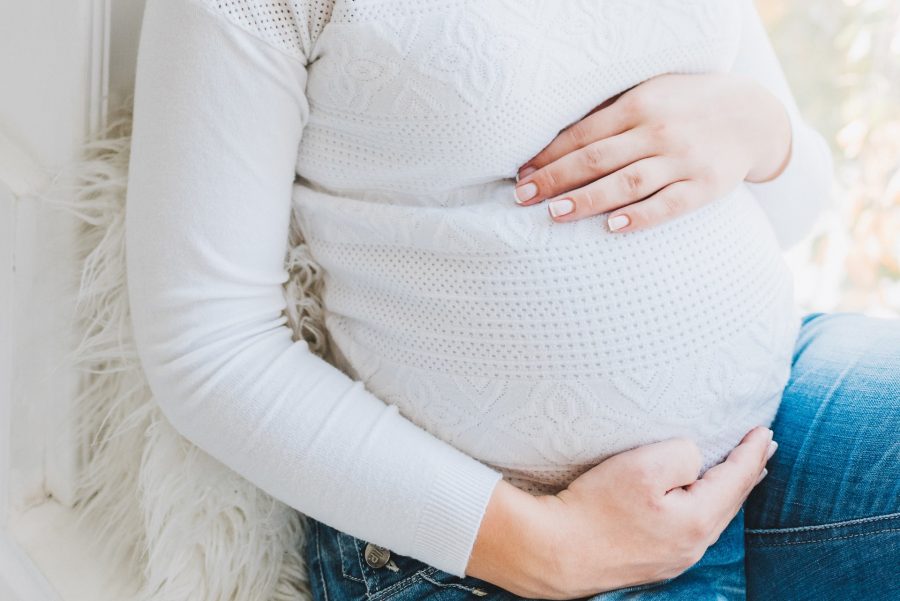
We all know that dental health is an important part of our overall health and wellbeing and, if you are pregnant, it also forms an important part of your prenatal care. During pregnancy, you may come to face many new and uncomfortable health issues as you approach your due date. Whilst things such as swelling and aversion to foods can all be put down to pregnancy, there are some health concerns you might face whilst pregnant which shouldn’t be overlooked.
Being pregnant can increase your risk of developing oral health problems and these problems can then go on to affect your pregnancy. Some studies have shown that there may be a link between gum disease and premature births, which occur before 37 weeks of pregnancy. Premature babies are more at risk of developing health problems in comparison to babies who are born full-term.
Taking care of your oral health whilst pregnant is important as it can help you to not only have a healthy and positive pregnancy, but also give birth to a healthy baby. With that in mind, here are 5 facts you may not have known about dental care during pregnancy.
How Does Pregnancy Affect Your Dental Health?
Changes that occur during pregnancy can go on to affect your teeth and gums. These can include:
- Increased levels of certain hormones, such as estrogen and progesterone, can occur during pregnancy. These can then put you at increased risk for certain oral health issues.
- Morning sickness can cause teeth to become more sensitive and can increase your chances of developing cavities and bleeding gums, as the acid can affect your mouth’s microbiome.
- During pregnancy, your eating habits may change and you might eat more of certain things than you did prior to pregnancy. Some types of food can affect your dental health, for example if you have a much sweeter tooth now, this can increase your risk of cavities.
- Some women report that they don’t brush or floss as regularly when pregnant. This can be down to a number of different things, such as feeling more tired than usual or having sensitive gums due to morning sickness. For some women, the sensation and taste that comes with brushing teeth can actually cause them nausea.
All of these things can affect your dental health and wellbeing and should be monitored in order to avoid further or long term dental disruption.
Keep An Eye Out For Bleeding Gums
Fluctuating hormone levels during pregnancy means that your body will react in different ways than it did before. When it comes to your oral health, your body may react to the bacteria on your teeth and this can then lead to bleeding or swollen gums.
In some cases, this can lead to serious forms of gum disease, such as pregnancy gingivitis or periodontitis. If gingivitis is left untreated, then this can lead to periodontal disease. This causes serious infections within your gums and can cause problems with your bones. As a result, your teeth may become loose and need to be removed. In serious cases, periodontitis can also lead to bacteremia, which is where bacteria enters your bloodstream and puts you at heightened risk of infection. This is a very serious condition that needs immediate treatment.
There have been some links between gum disease and pregnancy, with an increased risk of pre-eclampsia and premature birth. It is important that if you spot any signs of gum disease, including bleeding gums, that you get them checked out by your dentist as soon as possible.
Your Diet Can Impact Your Oral Health
When it comes to your oral health, one of the easiest ways in which you can take care of it is through your diet. Cutting down on how much sugar you consume can reduce your risk of tooth decay and cavities. If you have developed cravings for sweet foods during your pregnancy, then consider snacking on fresh fruits in place of sugary treats every now and then. Not only is this a great way to look after your oral health, but also helps to look after you and your baby.
Avoid Dental X-Rays and Anaesthesia
If you are pregnant, then it is important to let your dentist know, especially if you are due to have some dental work done. Your dentist will likely wait until after you’ve had your baby to carry out these procedures, especially if they include anaesthesia or numerous x-rays. Whilst x-rays have been found to not carry any risks to your baby, repeated or elongated exposure to radiation can potentially cause damage to your body’s cells in the long run. X-rays use very low doses of radiation and carry a very minimal risk to your baby.
It’s Ok To Take Painkillers and Antibiotics
The pain and discomfort of some dental procedures can be treated with painkillers and this is still the case when you are pregnant. If your dentist recommends antibiotics for a dental issue, such as an abscess or infection, then this shouldn’t be any cause for concern for your baby, but it is best to speak to your doctor before taking any medication whilst pregnant.
Morning Sickness Can Cause Teeth Erosion
Repeated vomiting caused by morning sickness can lead to tooth erosion and cavities. Vomit contains stomach acid which can harm and damage the enamel (the hard outer surface of your teeth). Morning sickness commonly occurs during the first trimester of pregnancy, which reduces the risk of dental problems.
However, some women suffer from morning sickness throughout their pregnancy, which increases their risk of teeth erosion. If you are suffering from prolonged morning sickness, then it is best to arrange a checkup with your dentist, who will check for any potential issues. It’s important to avoid missing or putting off your dental appointments, as this can only cause further damage.
Symptoms Of Dental Problems During Pregnancy
If you have any signs or symptoms of dental problems during your pregnancy, then contact your local dentist in Warrington, Manchester or Cheshire. Signs and symptoms of dental problems can include:
- Bad breath
- Loose teeth
- Mouth sores and lumps
- Gaps between teeth
- Receding gums
- Gums that are swollen, red and tender, or gums that bleed easily
- Toothaches, gum or jaw pain







